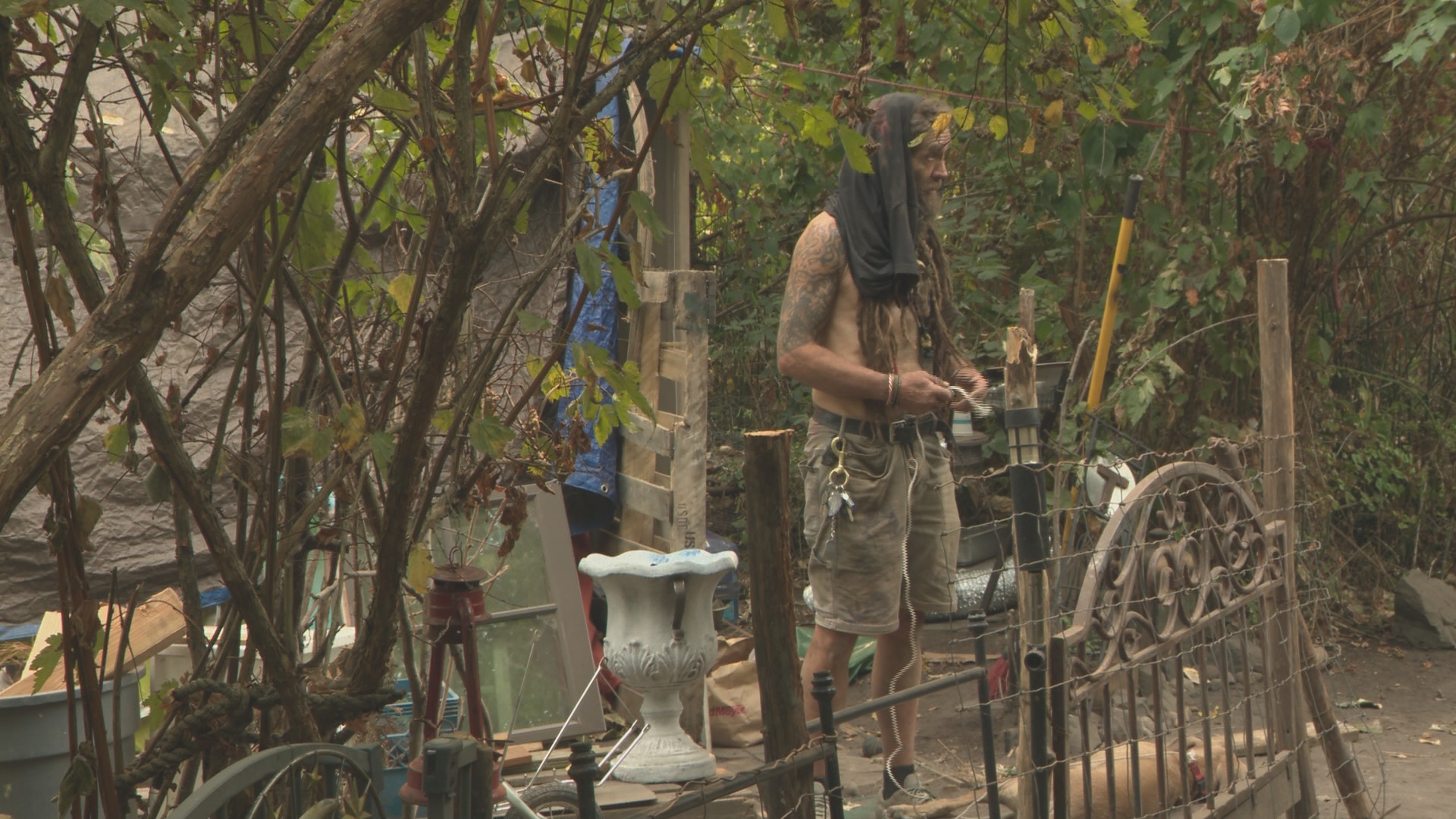PORTLAND, Ore. – Tucked just outside of Portland, in the wooded expanse of the Sandy River Delta, a growing number of homeless camps have taken root—some of them resembling small shantytowns. For those who live there, the delta offers community and privacy. For firefighters and state officials, however, it has become a zone of conflict, fire risk, and failed cleanup attempts.
Fires in the Woods
Firefighters say the camps are increasingly dangerous to access when emergencies arise. The terrain is rugged, the trails are narrow, and in some cases, inhabitants actively block emergency crews from reaching fires.
Recently, the Corbett Fire District shared drone video of a car engulfed in flames near the camps. A week earlier, a fire broke out in one of the camps following what witnesses described as a personal dispute.
Also Read
“One person reported that someone intentionally lit the fires because they were having a conflict with someone else,” said Dave Flood, fire marshal for Corbett Fire District 14.
Unable to reach the site due to hostility, firefighters monitored from a distance as camp residents themselves dug fire lines and smothered flames with dirt. Flood said the district responds to roughly three fires annually in the delta woods and as many as three medical calls per week during summer months.
Violence is another concern. Reports of gunfire, knife fights, and even a machete attack have drawn law enforcement into the area.
Life in the Delta
Among the residents is Gene, a 60-year-old who has lived in the delta for a decade. For him, living off the grid is intentional.
“I had some things happen … in 2007, I lost a child. It changed my way of looking at things,” Gene said.
He described the camps as a form of communal living, noting that residents even hold meetings and set informal standards. His camp, decorated and fenced, was notably neater than most others observed in the woods.
Yet, danger remains ever-present. “It didn’t have anything to do with us,” Gene said about the recent car fire, underscoring the unpredictability of life in the delta.
Barriers to Access
Flood explained that firefighters face more than just rough terrain. Camp residents have begun creating obstacles—such as trenches designed to trap vehicle tires—making it even harder for crews to respond.
“We found a bunch of items blocking our path,” Flood said. “Ditches that were dug that would trap your tire so you couldn’t get through … and I think all of that was in response to what happened out here in June.”
The Failed June Cleanup
In June, the Oregon Department of State Lands (DSL) attempted to clear roughly 50 acres of its property within the delta. The rest of the area is managed by the U.S. Forest Service.
According to DSL spokesperson Alyssa Rash, confrontations erupted almost immediately between cleanup contractors and protesters. Pepper spray was deployed multiple times, and law enforcement was called three times over the course of the week for incidents involving physical altercations, trespassing, and property damage.
The tense encounters prompted the state to halt the effort. Officials from DSL, the governor’s office, state police, and local law enforcement are still working on a plan to resume operations safely. Rash said cleanup efforts are tentatively scheduled to resume at the end of September.
Residents Push Back
Many campers, including Gene, see the state’s actions as an attack on their way of life.
“They’re destroying our family,” Gene said. “They’re coming through, and they are upending us.”
He added that residents are trying to request a meeting with the governor to negotiate.
“We don’t like society’s rules; it’s bullsh–, man. We’re trying to get a meeting with the governor so we can come to some kind of a conclusion, so they stop throwing our sh– away and harassing us.”
Support Amid Tension
Despite state efforts to clear the camps, not all interactions with the outside world are adversarial. The Salvation Army continues to provide food to camp residents each day, offering a vital lifeline.
“For folks who don’t have nothing, it definitely helps,” Gene acknowledged.
A Growing Dilemma
The Sandy River Delta, also known as Thousand Acres, remains a popular destination for hiking and recreation. But the presence of entrenched camps highlights the complex collision of public land use, homelessness, and public safety.
For firefighters, each fire poses not only a risk to lives and property but also to the sensitive natural area itself. For residents like Gene, the camps represent freedom and community in the face of hardship.
As September approaches and the state prepares to restart cleanup efforts, the question remains: Will confrontation continue, or will officials and residents find a compromise?












